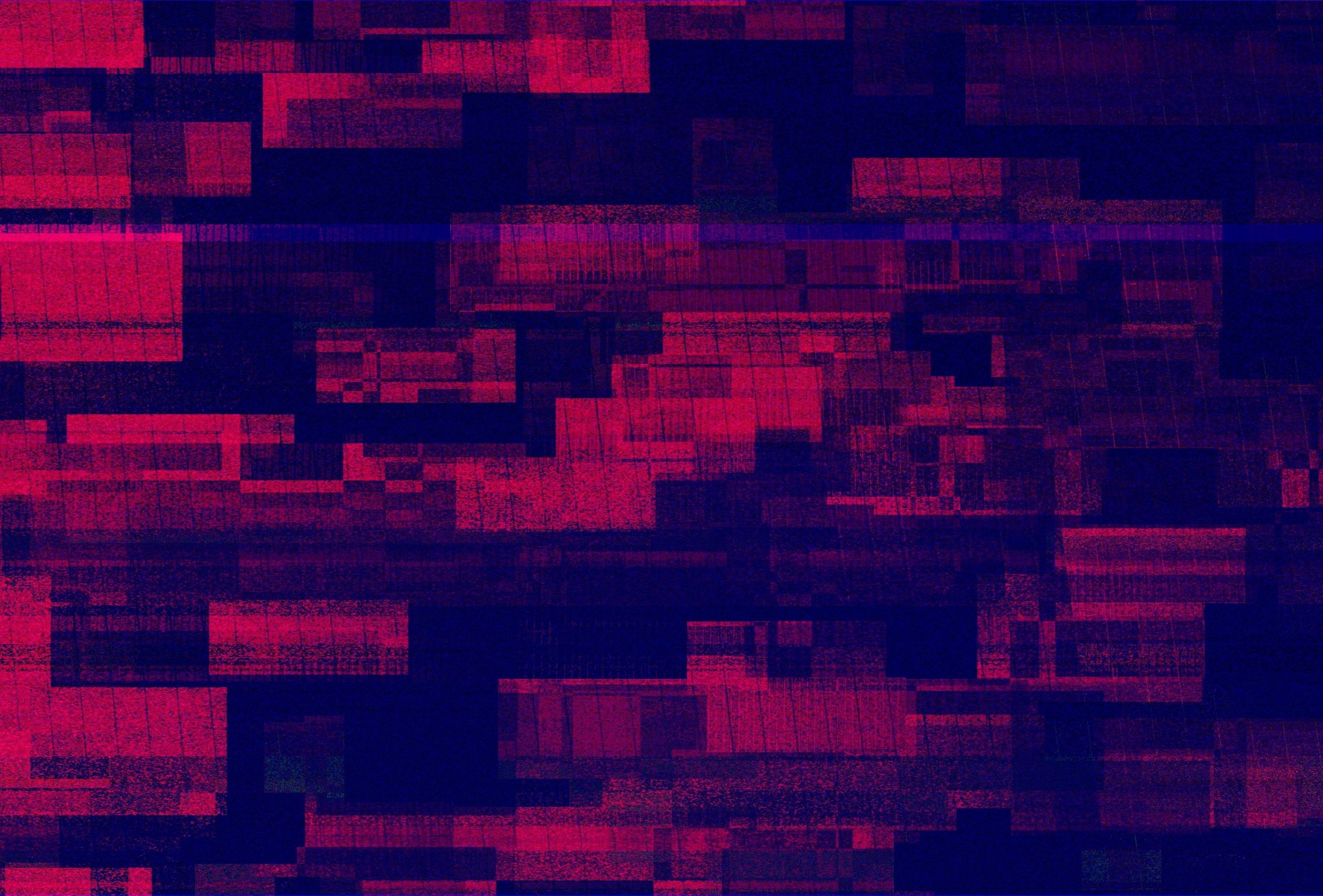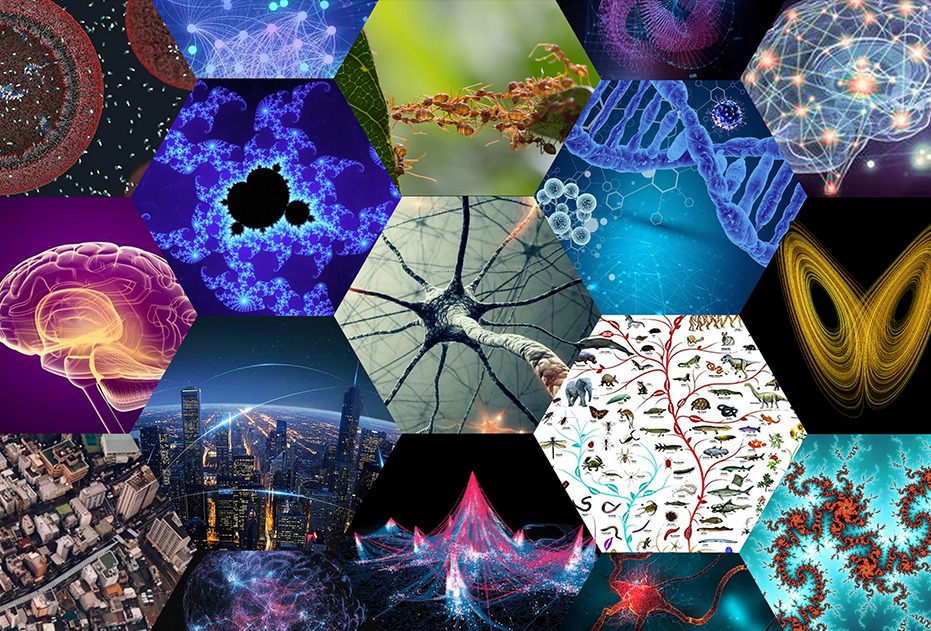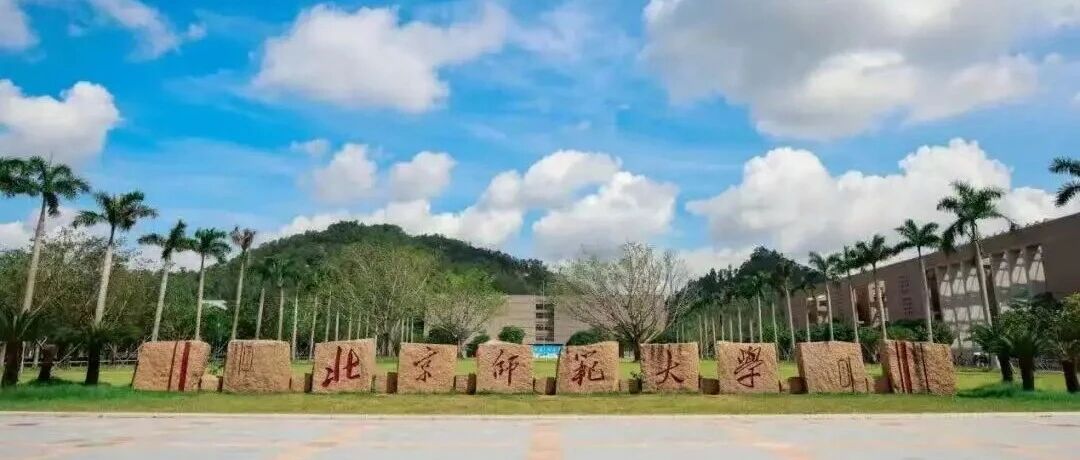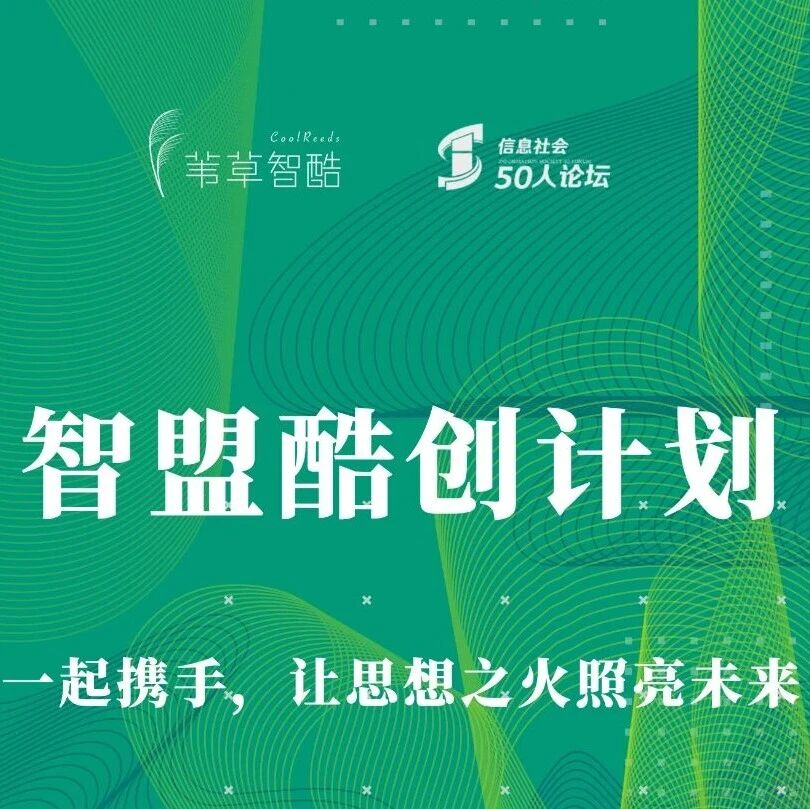融合计算科学、社会科学与复杂科学:社会计算系列读书会启动招募
导语
随着大数据的持续积累和数字技术的迭代,社会计算(social computing)这一交叉领域正快速兴起,社交网络分析、自然语言处理、机器学习、系统动力学、多主体建模等技术在这一领域碰撞融合,逐渐挖掘出信息时代社会行为的深层规律。集智俱乐部以「社会计算」为主题,组织为期10-12周的读书会,多位专家牵头,研读经典和前沿文献,交流激发科研灵感。
同时,集智学园年费VIP计划已经启动,VIP计划面向有长期学习和科研需求的朋友,VIP会员在权益期间免费参与各类读书会与课程。详情见文末。

数字技术不仅彻底改变了我们的社会,也正在改变我们研究社会的方式。目前,硅谷里那些价值不菲的公司、许多强大的政府机构和影响力颇大的社会运动都在利用这一点。而这一切的共同点是,它们都在使用计算工具或数据处理技术来帮助理解并影响人类的行为及其社会动力学。
在这个数据时代里,数字足迹毫无保留地记录下了日益增多的人类社会中的各种互动信息,而对这些信息的研究可以使我们对社会的本质及其运作规律获得前所未有的认知和理解。这其中包括了长期以来令人困惑的错综复杂的社会网络,计算能力的改变让该领域的研究取得了长足进步,诸如机器学习和自然语言处理等技术的进步使得科学家可以检测和分析那些隐藏的模式。计算仿真将使我们拥有模拟已知现实甚至探索未知条件的能力,这些变化彻底改变了传统的社会科学研究范式。
新的研究范式方兴未艾,而本读书会希望将这些新的研究范式呈现出来并集结起来,通过分享和讨论加强社区的交流碰撞,促进对这个领域的梳理和建设。
为了相关领域学者更好地讨论和交流,推动交叉学科间的合作,促进社会计算的发展和研究,集智俱乐部主办的社会计算读书会,将于5月27日(周四)正式启动,预计为期10-12周,每周四晚上20:00-22:00进行在线的论文分享与讨论,欢迎对社会计算、社会智能、复杂科学、社会科学等领域感兴趣的朋友报名参加,报名参加读书会可赠送中国人工智能学会社会计算与社会智能专委会员一年,欢迎大家加入。(读书会报名长期有效,会员赠送截止时间2021年12月31日)
1. 读书会介绍
1. 读书会介绍
[1] 孟小峰, 李勇, 祝建华. 社会计算:大数据时代的机遇与挑战[J]. 计算机研究与发展, 2013, 50(012):2483-2491.
[2] Lazer, David, et al. “Social science. Computational social science.” Science (New York, NY) 323.5915 (2009): 721-723.
[3] Conte, Rosaria, et al. “Manifesto of computational social science.” The European Physical Journal Special Topics 214.1 (2012): 325-346.
[4] Salganik, Matthew J. Bit by bit: Social research in the digital age. Princeton University Press, 2019.
[5] Wallach, Hanna. “Computational social science≠ computer science+ social data.” Communications of the ACM 61.3 (2018): 42-44.
读书会的内容框架
2、计算科学之于社会计算
d. 图像分析与文本挖掘/Image Analysis and Text Mining for CSS
3、复杂科学之于社会计算
c. 智慧城市/Smart City
2. 发起人&专家顾问团
2. 发起人&专家顾问团
发起人

王硕,中国人民大学网络与移动数据管理管理实验室博士,现为河北大学数学与科学学院数据科学系讲师,中国人工智能学会社会计算与社会智能专委会会员。
专家顾问团

孟小峰,中国人民大学教授,中国计算机学会会士, 担任ACM中国 SIGSPATIAL分会主席,中国人工智能学会社会计算与社会智能专委会主任等。
长期从事数据库与数据管理的研究与教学,选择前沿性课题开展研究,自主开发多个数据管理系统,并将多年研究成果结集出版学术专著”网络与移动数据管理”三部曲(《XML数据管理:概念与技术》、《移动数据管理:概念与技术》、《Web数据管理:概念与技术》,CCF学术著作丛书,清华大学出版社)。获得省部级特等奖一次(1996),二等奖3次,中国计算机学会”王选奖”一等奖(2009),入选 “第三届北京市高校名师奖”(2007)等。近期主要研究领域包括:数据智能(空间数据智能、科学数据智能、学术数据智能、商务数据智能等),数据治理(数据隐私、数据垄断、数据透明、数据公平与伦理等),社会计算与社会智能等交叉学科。

罗家德,清华大学社会学系教授、博士生导师,清华大学社会网络研究中心主任,

王晓,中国科学院自动化研究所复杂系统管理与控制国家重点实验室副研究员,博士。主要从事社会计算、智能交通与车联网、人工智能等方向的研究。2017年获得中国自动化学会全国优秀博士学位论文奖,2018年入选“中国科协青年托举人才工程”。发表论文60余篇,其中被SCIE收录12篇,被SCI他引218次,EI收录48篇。出版译著3部。现在《IEEE Transactions on Intelligent Transportations Systems》、《IEEE/CAA Journal of Automatica Sinica》、《IEEE Transactions on Computational Social Systems》等多个国际刊物担任审核稿人。中国自动化学会混合智能专委会副秘书长,中国人工智能学会社会计算与社会智能专业委员会秘书长。
研究领域:社会计算、智能交通与车联网、人工智能

吕鹏,中南大学公共管理学院教授、社会计算研究中心主任、教育部青年长江学者,中国人工智能学会社会计算与社会智能专委会委员。清华大学社会学系博士、清华大学自动化系博士后。国家社科重大首席专家、中央网信办“特约研究员”、国家民委优秀中青年专家。

王静远,北京航空航天大学副教授、博士生导师,北京市“大数据科学与脑机智能北京市高精尖创新中心”高级研究员,北航“数据智能研究中心”研究员,北京城市实验室(Beijing City Lab)副主任。

李勇,中国人民大学工学博士,西北师范大学计算机科学与工程学院副教授,硕士研究生导师,中国人工智能学会社会计算与社会智能专业委员会副秘书长。
特别感谢
3. 参与方式和时间
3. 参与方式和时间
本次读书会适合的参与对象:
4. 对复杂系统、计算科学、社会科学以及交叉学科感兴趣的爱好者
具体规则:
1. 读书会(10-12期)保证金共计 399 元/人。
2. 满足如下条件之一者全额退款(本季读书会结束后统一退费):
-
贡献了一次讲座(半小时以上)内容的(需要提前向主持人申请并通过试讲); -
完成了一篇以上读书笔记写作,并在集智俱乐部公众号分享。(读书笔记标准:字数3千以上,图文并茂,具体请参照此文:前沿综述:大脑结构网络、功能网络和网络控制中的物理学); -
认真完成集智百科相应的编撰任务,经过集智百科团队审核通过,并达到399积分。(详情见https://wiki.swarma.org/index.php?title=激励制度)
-
由读书会内容启发,产生了靠谱的新产品创意,并在读书会结束 2 个月内提交了详细的产品策划方案,并通过了集智俱乐部组织的相应考核答辩的; -
由读书会内容启发,萌发了科研论文创意,在读书会结束 2 个月内完成初稿,并在最终的论文成果中致谢集智俱乐部和因果社区的(需要发表在SCI等核心刊物上)。
4. 限时赠送
4. 限时赠送
社会计算与社会智能专委会会员权益:
-
优先参加专委举办的各项学术交流活动和志愿者工作机会,获得同社会计算与社会智能领域国内外知名专家更加深入交流的机会;
-
享受专委及CAAI举办的“全国大数据与社会计算学术会议”、“社会计算与社会智能交叉学科战略研讨会”等数百场学术会议、专业培训和讲座的注册费优惠(部分免费、低折扣);
-
获得向社会计算与社会智能领域学术期刊、学术会议投稿的机会;
-
优先获得社会计算与社会智能领域的学术动态和与最新研究进展报告;
-
有机会申请成为专委委员,有投票、选举权,颁发委员证书(教师或研究人员)
-
有机会申请成为专委“ 青年委员”,可以参加专委的活动,颁发青年委员证书(优秀学生)
5. 报名方式
5. 报名方式

6. 关于主办方和集智俱乐部读书会
6. 关于主办方和集智俱乐部读书会
7. 论文阅读清单
7. 论文阅读清单

扫描二维码,获取读书会论文清单,后续会在集智斑图做更新
链接:https://pattern.swarma.org/path?id=126
计算科学之于社会计算
可解释的智能模型/Interpretable Intelligent Models in CSS
-
Wang, Jingyuan, et al. “Alphastock: A buying-winners-and-selling-losers investment strategy using interpretable deep reinforcement attention networks.” Proceedings of the 25th ACM SIGKDD International Conference on Knowledge Discovery & Data Mining. 2019.
-
Wang, Jingyuan, et al. “Deep Fuzzy Cognitive Maps for Interpretable Multivariate Time Series Prediction.” IEEE Transactions on Fuzzy Systems (2020).
-
Wang, Jingyuan, et al. “Multilevel wavelet decomposition network for interpretable time series analysis.” Proceedings of the 24th ACM SIGKDD International Conference on Knowledge Discovery & Data Mining. 2018.
-
Wang, Jingyuan, et al. “Empowering A* search algorithms with neural networks for personalized route recommendation.” Proceedings of the 25th ACM SIGKDD International Conference on Knowledge Discovery & Data Mining. 2019.
-
Wu, Ning, et al. “Learning Effective Road Network Representation with Hierarchical Graph Neural Networks.” Proceedings of the 26th ACM SIGKDD International Conference on Knowledge Discovery & Data Mining. 2020.
-
Lazer, David, and Jason Radford. “Data ex machina: introduction to big data.” Annual Review of Sociology 43 (2017): 19-39.
-
Gao, Jian, Yi-Cheng Zhang, and Tao Zhou. “Computational socioeconomics.” Physics Reports 817 (2019): 1-104.
-
Kou, :, et al. “Deep learning based inverse model for building fire source location and intensity estimation.” Fire Safety Journal 121 (2021): 103310.
-
Nov, Oded, and Sunil Wattal. “Social computing privacy concerns: antecedents and effects.” Proceedings of the SIGCHI conference on human factors in computing systems. 2009.
-
Akiti, Chandan, Anna Squicciarini, and Sarah Rajtmajer. “A Semantics-based Approach to Disclosure Classification in User-Generated Online Content.” Proceedings of the 2020 Conference on Empirical Methods in Natural Language Processing: Findings. 2020.
-
孟小峰, 朱敏杰, and 刘俊旭. “大规模用户隐私风险量化研究.” 信息安全研究 5.9 (2019): 778-788.
-
Debatin, Bernhard. “Ethics, privacy, and self-restraint in social networking.” Privacy online. Springer, Berlin, Heidelberg, 2011. 47-60.
-
Post, Robert C. “Data privacy and dignitary privacy: Google Spain, the right to be forgotten, and the construction of the public sphere.” Duke LJ 67 (2017): 981.
-
孟小峰, et al. “数据垄断与其治理模式研究.” 信息安全研究 9 (2019).
-
孟小峰, 王雷霞, and 刘俊旭. “人工智能时代的数据隐私, 垄断与公平.” 大数据 6.1 (2020): 0.
-
Fioretti, Guido. “Agent-based simulation models in organization science.” Organizational Research Methods 16.2 (2013): 227-242.
-
Gómez-Cruz, Nelson Alfonso, Isabella Loaiza Saa, and Francisco Fernando Ortega Hurtado. “Agent-based simulation in management and organizational studies: a survey.” European Journal of Management and Business Economics (2017).
-
Secchi, Davide, and Martin Neumann. “Agent-based simulation of organizational behavior.” Springer, Cham doi 10 (2016): 978-3.
-
Zhang, Jun Jason, et al. “Cyber-physical-social systems: The state of the art and perspectives.” IEEE Transactions on Computational Social Systems 5.3 (2018): 829-840.
-
Wu, Chuhan, et al. “Neural news recommendation with heterogeneous user behavior.” Proceedings of the 2019 Conference on Empirical Methods in Natural Language Processing and the 9th International Joint Conference on Natural Language Processing (EMNLP-IJCNLP). 2019.
-
Wang, Hongwei, et al. “DKN: Deep knowledge-aware network for news recommendation.” Proceedings of the 2018 world wide web conference. 2018.
-
He, Li, Antonio Páez, and Desheng Liu. “Built environment and violent crime: An environmental audit approach using Google Street View.” Computers, Environment and Urban Systems 66 (2017): 83-95.
复杂科学之于社会计算
-
Zhou, Fang, Linyuan Lü, and Manuel Sebastian Mariani. “Fast influencers in complex networks.” Communications in Nonlinear Science and Numerical Simulation 74 (2019): 69-83.
-
Vosoughi, Soroush, Deb Roy, and Sinan Aral. “The spread of true and false news online.” Science 359.6380 (2018): 1146-1151.
-
Ni, Shunjiang, Wenguo Weng, and Hui Zhang. “Modeling the effects of social impact on epidemic spreading in complex networks.” Physica A: Statistical Mechanics and its Applications 390.23-24 (2011): 4528-4534.
-
Lu, Peng, et al. “The sandpile model and empire dynamics.” Chaos, Solitons & Fractals 143 (2021): 110615.
-
Liu, Lu, et al. “Hot streaks in artistic, cultural, and scientific careers.” Nature 559.7714 (2018): 396-399.
-
Mariani, Manuel S., and Linyuan Lü. “Network-based ranking in social systems: three challenges.” Journal of Physics: Complexity 1.1 (2020): 011001.
-
Xu, Jia, et al. “Incentive mechanism for multiple cooperative tasks with compatible users in mobile crowd sensing via online communities.” IEEE Transactions on Mobile Computing 19.7 (2019): 1618-1633.
-
Wang, Jiangtao, et al. “Social-network-assisted worker recruitment in mobile crowd sensing.” IEEE Transactions on Mobile Computing 18.7 (2018): 1661-1673.
-
Varga, Attila. “Shorter distances between papers over time are due to more cross-field references and increased citation rate to higher-impact papers.” Proceedings of the National Academy of Sciences 116.44 (2019): 22094-22099.
-
Xie, Jiarong, et al. “Detecting and modelling real percolation and phase transitions of information on social media.” Nature Human Behaviour (2021): 1-8.
-
Li, Sijia, et al. “The impact of family violence incidents on personality changes: An examination of social media users’ messages in C hina.” PsyCh Journal (2021).
-
Lin, Yu-Ru, et al. “Facetnet: a framework for analyzing communities and their evolutions in dynamic networks.” Proceedings of the 17th international conference on World Wide Web. 2008.
-
Huang, Jianbin, et al. “Density-based shrinkage for revealing hierarchical and overlapping community structure in networks.” Physica A: Statistical Mechanics and its Applications 390.11 (2011): 2160-2171.
-
Bettencourt, Luís MA. “The origins of scaling in cities.” science 340.6139 (2013): 1438-1441.
-
Blumenstock, Joshua, Gabriel Cadamuro, and Robert On. “Predicting poverty and wealth from mobile phone metadata.” Science 350.6264 (2015): 1073-1076.
-
Ju, Jingrui, Luning Liu, and Yuqiang Feng. “Citizen-centered big data analysis-driven governance intelligence framework for smart cities.” Telecommunications Policy 42.10 (2018): 881-896.
-
He, Li, et al. “Ambient Population and Larceny-Theft: A Spatial Analysis Using Mobile Phone Data.” ISPRS International Journal of Geo-Information 9.6 (2020): 342.
-
Li, Hui-min, et al. “Analyzing the relationship between developed land area and nighttime light emissions of 36 Chinese cities.” Remote Sensing 11.1 (2019): 10.
-
Wang, Lingli, et al. “Voice-Based AI in Call Center Customer Service: Evidence from a Field Experiment.” Call Center Customer Service: Evidence from a Field Experiment (June 22, 2020) (2020).
-
Wang, Chenyang, Yang Gao, and Hui Zhang. “Typical patterns of government response measures and trends for COVID-19 pandemic.” Proceedings of the 6th ACM SIGSPATIAL International Workshop on Emergency Management using GIS. 2020.
加入VIP,解锁集智课程&读书会
加入VIP,解锁集智课程&读书会
集智长期深耕复杂系统与跨学科研究,在网络科学、系统理论等经典领域持续策划精品课程,同时也追逐因果科学、深度学习、复杂经济学、生命复杂性、社会计算等交叉前沿。汇集了大量的探索者,包括教授、硕博、工程师、创业者等等。
为了帮助有学习需求的朋友夯实学科基础,帮有科研需求的朋友深入前沿交流,我们开放了1年制和2年制的集智学园VIP计划。VIP用户可以深度参与集智俱乐部社区,并在会员期内解锁集智学园全站课程权限。

更多关于VIP介绍,请点击查看:











